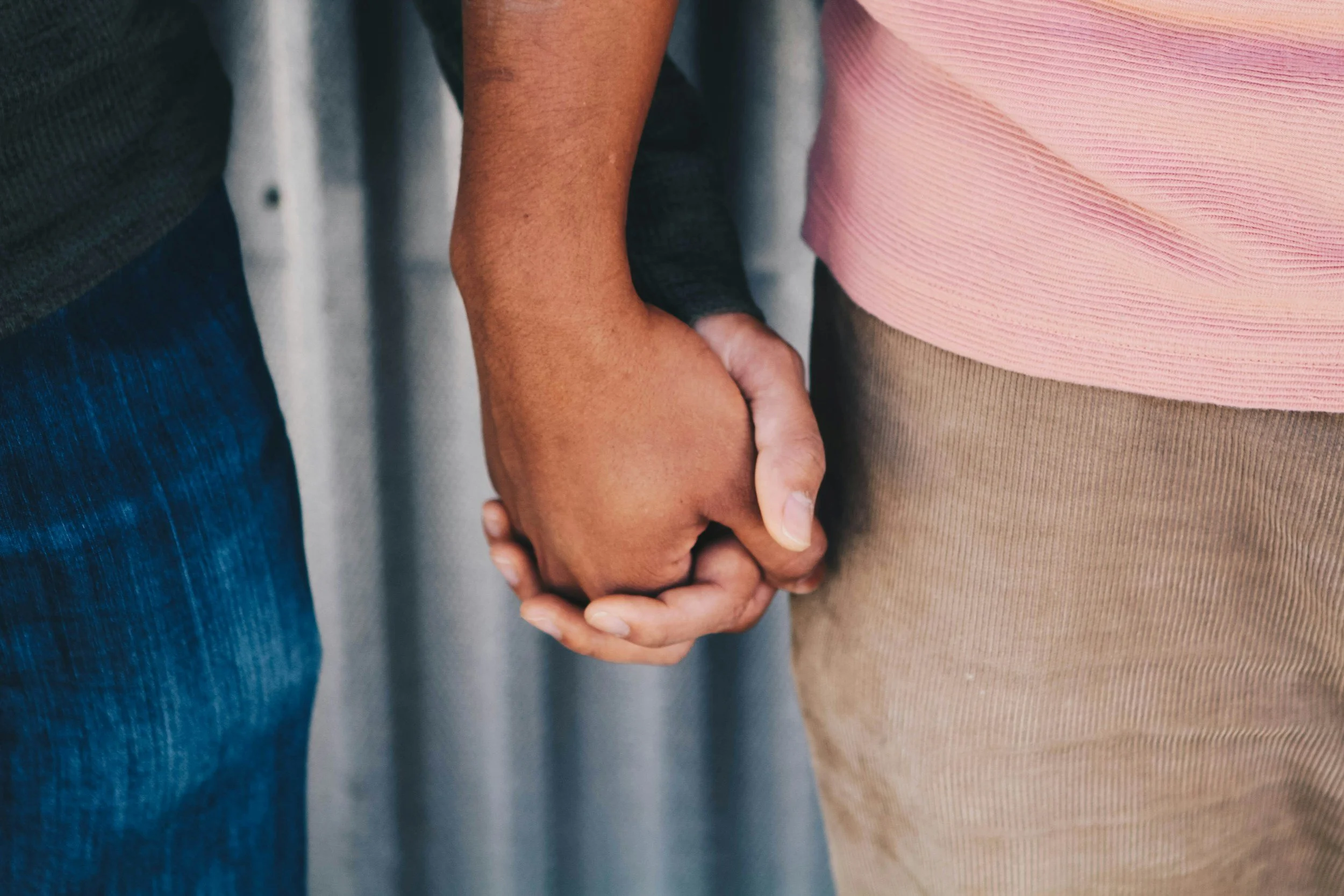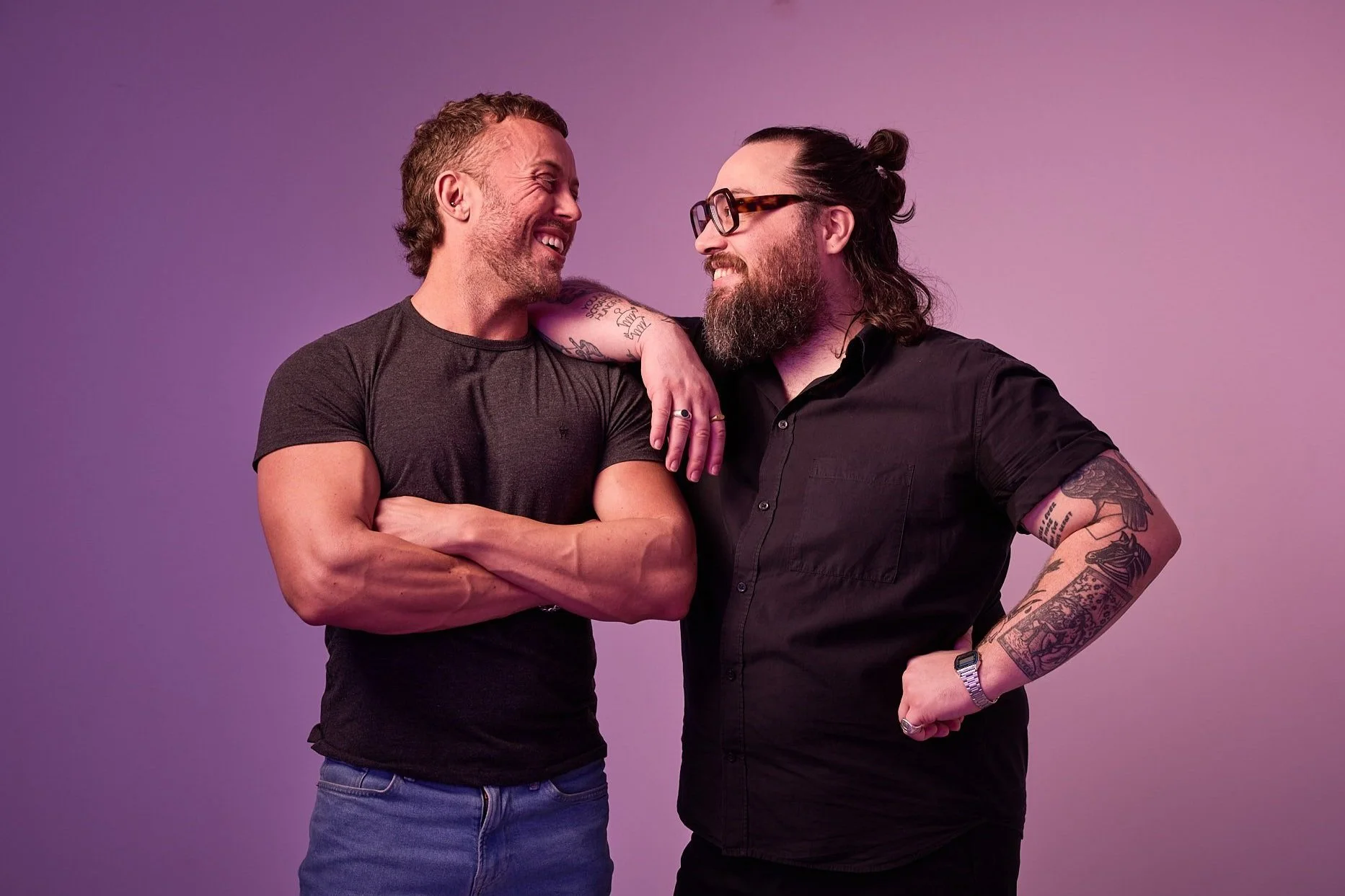How to Support Someone Who's Come Out as Bisexual
If someone close to you has just come out as bisexual, congratulations on taking the first step toward understanding and supporting them.
This resource will help you learn more about bisexuality, address misconceptions, and provide tools to navigate this journey with compassion.
Remember, identification is highly individual, and the best way to understand someone is to talk to them—about how they identify, their attraction, and how they want to be supported.
What is Bisexuality?
Bisexuality can mean different things to different people, but a common definition, as articulated by Robyn Ochs, is:
“I call myself bisexual because I acknowledge that I have in myself the potential to be attracted—romantically and/or sexually—to people of more than one sex and/or gender, not necessarily at the same time, not necessarily in the same way, and not necessarily to the same degree.”
This definition highlights the fluidity and personal nature of bisexuality.
Bisexuality can also include attraction to all genders, including transgender, non-binary, and genderqueer individuals.
Bi+ and Related Labels
The term bi+ is an umbrella for identities under the bisexual banner, including bisexuality, pansexual, omnisexual, fluid, and queer. These labels share a common thread: the potential for attraction to more than one gender.
Bisexual: Attraction to more than one gender, not necessarily at the same time or in the same way.
Pansexual: Attraction to people regardless of gender; gender is not a determining factor in attraction.
Omnisexual: Similar to pansexual, but with an awareness of gender as part of the attraction.
Fluid: Sexual orientation that can change over time and may not be fixed.
Queer: A broad term that can encompass many different identities, often used by those who feel they don't fit neatly into one label.
Learning about these labels can help you better accept and understand the different experiences of bisexual individuals.
Common Questions You Might Be Asking Yourself
If someone has just come out to you as bisexual, you might have a lot of thoughts and questions running through your mind. Here are some common questions people ask themselves.
-
It's common for bisexual people to wait before coming out because of fear of judgment, rejection, or not knowing how others will react.
Many worry about being misunderstood or losing important relationships. It takes a lot of courage to share something so personal, especially when there is uncertainty about how it will be received.
-
Your relationship can still be strong, or even stronger. Being bisexual doesn't change the love they have for you—it means they're being more open.
Identification is very personal, and everyone understands and expresses it differently. How it affects your relationship is unique to both of you, whether you're partners, family, friends, or co-workers.
Each relationship is unique, and it's up to you to navigate it together.
-
The best way to support your loved one is to be open, ask respectful questions, and educate yourself (this one goes a looong way).
Listen to what they have to say without judgment, and let them know you are there for them no matter what.
Showing that you care, being patient, and offering your unconditional support makes a big difference in helping them feel understood and loved.
-
There are a large set of myths, stereotypes, and stigma that face the bisexual community.
These misconceptions often create barriers to understanding and acceptance, making it harder for bisexual people to feel supported.
In the next section, we will address these myths to help clarify the truth and provide a more informed perspective.
Challenges Faced by Bisexual People
Bisexual people face challenges due to misconceptions, stereotypes, and lack of understanding. These challenges can make it hard for them to feel accepted, even within the LGBTQ+ community.
Below, we discuss two major issues: biphobia and bi-erasure, which impact bisexual people's experiences.
Biphobia
Biphobia refers to negative attitudes, stereotypes, or discrimination directed at bisexual individuals.
These often stem from misconceptions about bisexuality, such as the idea that bisexual people are "confused" or more likely to be untrustworthy.
Biphobia can create additional stress for bisexual individuals in their relationships, workplaces, and communities. The pressure to prove their sexuality or justify their experiences can lead to emotional exhaustion.
Bi-Erasure
Bi-erasure is the tendency to ignore, deny, or invalidate bisexuality, both within the LGBTQ+ community and in society at large.
This can include assuming someone is straight or gay based on their current relationship or dismissing bisexuality as just a phase.
Bisexuality is frequently overlooked or misunderstood, which can lead to feelings of invisibility or exclusion, even in spaces meant to be inclusive.
Understanding bi-erasure is crucial for supporting bisexual individuals and ensuring their identities are recognised and respected.
“It took years of living under a mislabel to finally embrace my true self. It wasn’t a walk in the park. I faced mockery, teasing, and hurtful comments from those who misunderstood or dismissed my identity. But being in the closet was incredibly harmful to my mental health. It felt like I was locked in chains. It’s such a good feeling to be out and living my truth.”
Steve SpencerMyths About Bisexuality (and the Truths Behind Them)
This is just some of the many myths that are pervasive in the bisexual community. There are many more misconceptions that people believe, and these myths can create real challenges for bisexual individuals.
We actually do a whole episode about this, diving deep into the myths, misconceptions, and the realities faced by bisexual people, which we will link to in the next section.
-
Truth: Bisexuality is a valid, lasting identity. Just as any other orientation, bisexuality isn't something that needs to be "grown out of."
-
Truth: Attraction can vary greatly in intensity and frequency; bisexual people do not have to be 50/50 attracted to different genders. Attraction is personal and nuanced.
-
Truth: Bisexuality has no correlation with someone's ability to commit. Trustworthiness is about individual character, not sexual orientation.
-
Truth: While some people may explore their identity on the way to discovering another label, bisexuality is a complete identity in itself—not just a stopover.
-
Truth: Being bisexual does not imply anything about someone's sexual behaviour or desires. Just like anyone else, bisexual people can have a wide range of relationship preferences.
-
Truth: Identity can evolve over time. It’s normal for people to come out multiple times as they explore their identity or find new labels that fit better. This doesn't make their previous identity any less valid.
-
Truth: A person's sexuality does not change based on who they are currently in a relationship with. Bisexuality is about the potential for attraction to more than one gender, regardless of the gender of their current partner. Being in a committed relationship doesn't erase someone's bisexual identity.
Relationships
Monogamy vs. Polyamory
Bisexual people, like anyone else, can be either monogamous or polyamorous.
Monogamy means having one partner at a time.
Polyamory means being in consensual relationships with multiple partners.
It’s important to understand that bisexuality doesn't determine someone's relationship style.
Just like straight or gay people, bisexual individuals may prefer monogamy or polyamory based on their personal values and desires.
If your partner or loved one has come out as bisexual, it doesn’t automatically mean that they want a different type of relationship.
Communication is key in understanding what kind of relationship works for both of you.
A common question people ask is, "If they're married/in a relationship, why do they need to be out? Why does it matter if they're bi?"
For many bisexual people, being open about their sexuality is an important part of their identity.
Being out allows them to live authentically and be seen for who they truly are.
Why Does It Matter if They're Married/in a Relationship?
Just because someone is married or in a committed relationship doesn’t mean their bisexuality is any less significant or that they should hide it.
Being bi is about who they are, not just who they are with, and sharing that part of themselves can foster deeper understanding and connection.
It’s not only about potential partners—it’s about living openly, honestly, and without shame.
What To Do
vsWhat Not to Do
Maintain Normalcy
Continue doing the things you've always done together. Your loved one probably fears that coming out will change everything, and maintaining those routines can be comforting and reassuring.
Affirm and Celebrate
Let them know you appreciate their trust in you by saying something like, "Thank you for trusting me enough to share this with me." Celebrate their courage and self-discovery, and let them know you are genuinely happy for them. Acknowledge how meaningful it is that they are embracing who they are.
Educate Yourself
Let them know you're committed to learning more. Offer to research together or share that you'll take the initiative to learn on your own.
Be Patient
Understand that they may not have all the answers about their identity right away. Allow them space to grow and explore.
Use Their Preferred Language
Respect the labels and terms they use to describe themselves, even if it's new to you.
Don’t Pressure Them
Avoid pressuring them to come out before they're ready. Respect their timeline, as coming out is personal and emotional. Forcing them can cause stress, anxiety, and potentially harm their safety. Let them decide when the time is right–if ever!
Don’t Violate Their Privacy
Do not share their identity without their permission. Coming out is their story to tell, and sharing it without consent can damage trust and put them in uncomfortable or unsafe situations.
Don't Judge Them
Even if you're unsure or uncomfortable, do not judge their identity. Your role is to support, not to critique.
Making Assumptions
Every bisexual person's experience is unique. Avoid assuming things about their preferences or experiences based on stereotypes.
Don’t Avoid the Conversation
They've invited you in, and by ignoring it, it could appear as though you're ashamed, embarrassed, or not supportive.
Key Episodes to Explore
We actually run a podcast about bisexuality, advocating for and sharing lived experiences of bisexual people.
You can read a bit more about who we are at the end of the page, but for now, here are some of the resources and podcast episodes we've recorded on specific topics:
"Debunking Bi Myths and Stereotypes"
This episode focuses on debunking common myths and stereotypes about bisexuality, providing clarity and dispelling misconceptions.
"Coming Out as Bisexual in 2024”
This episode explores the coming out process, sharing personal stories and discussing the unique challenges and triumphs of coming out as bisexual.
"Exploring Bi+ Research & Relationships"
We talk about what relationships look like for bi+ individuals, including both monogamous and non-monogamous dynamics, and how to navigate them.
"Bisexual Visibility and Generational Shifts"
Here we discuss how bisexual identification has evolved across different generations, including the shifts in social acceptance and understanding.
Who Are We?
We are Steve Spencer and Chad Barnier, co-hosts of the Give It To Me Bi podcast.
As passionate advocates for bisexual visibility and understanding, we created this platform to share the diverse experiences of bisexual people and provide support for those navigating their identity.
We try aim to break down misconceptions, build community, and offer a space where bisexual people and their loved ones feel seen, heard, and supported.
Listen along on Spotify or Apple Podcasts





